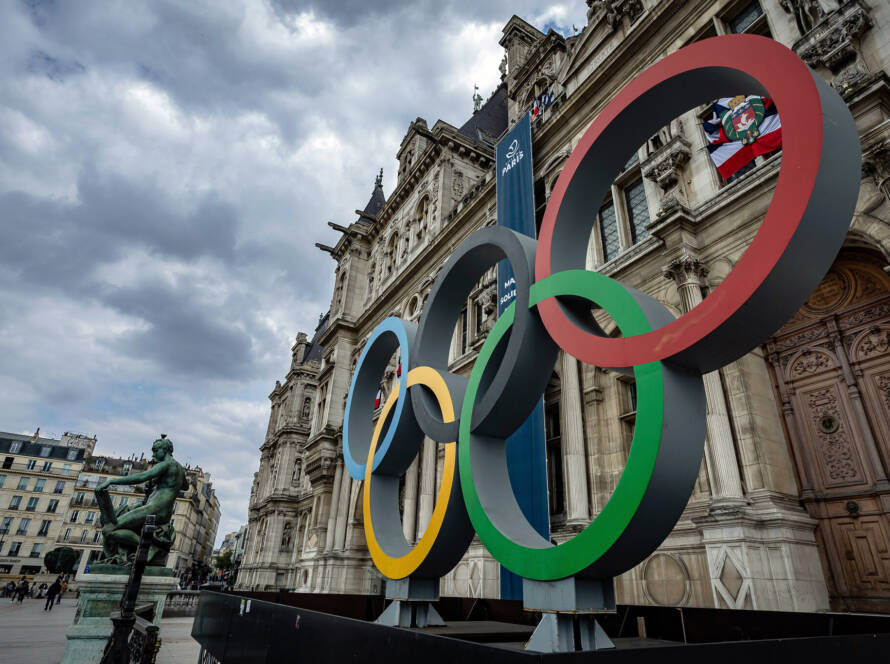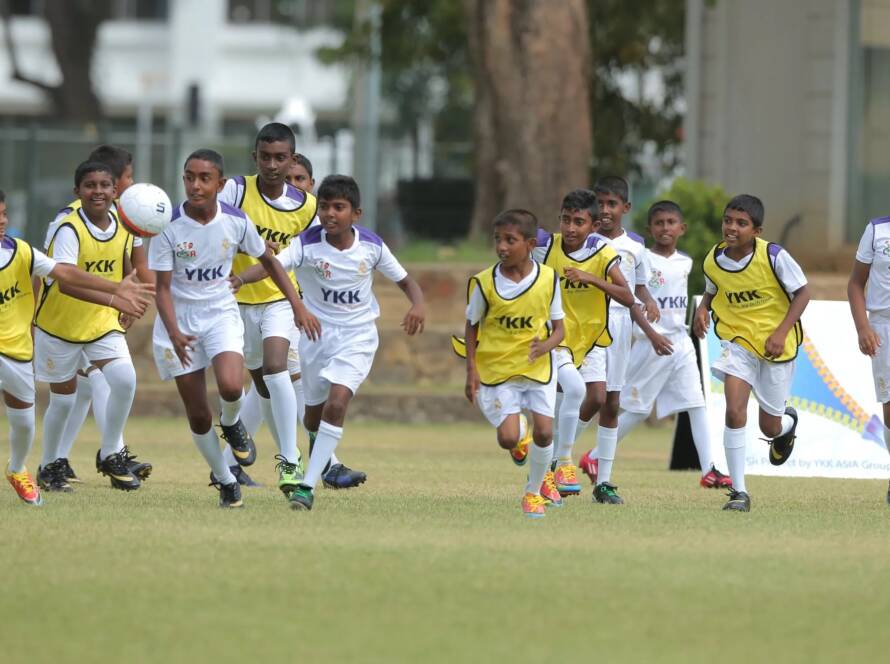By Suhas Jayalath
Although it remains underexplored if not unexplored, one of the major ways investors can look into spurring growth in Sri Lanka is through sports. The industry’s rapid ascent, and its growing value, is one of the main benefits of investing in sports.
Sports have become more commercialized as a result of the growth of major sports leagues and extension of broadcasting rights, having much potential for investors. This article explores key strategies that can help Sri Lanka improve its sports industry.
Investment in Infrastructure
UNESCO has stated that global data continues to show a strong link between grassroots sport participation and sustainable development. Current research on the social returns generated through sport shows that every USD invested in developing sport generates between USD 3 and USD 124 in value in the long term. Yet, sports remain underutilized and misunderstood as a domain of investment.
Realizing the benefits of sports in general and sports infrastructure in particular, nations such as China, Australia and the US have invested heavily in related infrastructure.
For instance, China, as part of its National Fitness Program, started investing in sports infrastructure in 1995.
Australia has focused on grass-roots development by building community sports infrastructure. Australia now reports USD 16.2 billion worth of social, health and economic benefits each year through community sports infrastructure.
The United States has tightly integrated sports infrastructure into its education system by providing athletics with facilities across schools, colleges and universities. This has helped these nations become global sporting powers.
Hosting Major Sporting Events
While each nation will have its own unique motivations for putting out a strong bid to host a sporting event, the most compelling one is probably financial gain. These kinds of events can have a significant positive economic impact in addition to enhancing a nation’s reputation internationally and encouraging trade and investment.
Hosting these events can significantly boost tourism, as visitors travel to the host country to attend the events, explore the local attractions, and experience the host nation’s culture. In addition to bringing in tourists and jobs, hosting international sporting events can boost the local economy by bringing in money from ticket sales, merchandise sales, and tourism-related businesses.
This economic boom frequently affects a number of industries, such as food services, transportation, and hotels. Even international relations and diplomacy can take place at international sporting events. In the face of political difficulties, they offer a neutral platform for nations to cooperate and have conversations.
Hosting a major sporting event is a massive undertaking, and when London won the bid for the 2012 Olympics, many believed that the city would suffer the same fate as some of its predecessors. However, according to a government report, the UK economy saw a £9.9 billion boost in trade and investment from hosting the event, notwithstanding the fact that estimates put the cost of hosting the Games at £8.9 billion.
Many countries have benefited from hosting major sporting events in their countries. China hosting the Olympics in 2022 and Qatar hosting the FIFA World Cup are two examples. The income of Beijing Olympics in 2022 has stood at USD 2.29 billion, with expenditure reaching USD 2.24 billion. The balance USD 52 million has been the profit.
According to Forbes FIFA has generated USD 7.5 billion in revenue from the 2022 world cup, from that revenue USD 1.56 billion goes to the hosts. Qatar’s revenue is primarily coming from tourism and business travel.
Although Sri Lanka is not quite there yet economically, to host such sporting events the necessary steps can be taken to get there one day. Not many years ago Singapore was struggling economically same as Sri Lanka.
Singapore now has the only street circuit in Formula One, on which the grand prix is held at night every year. The event takes place on the Marina Bay Street Circuit and was the inaugural night race and first street circuit in Asia designed for Formula One races.
It’s crucial to remember that although there are many advantages to hosting international sporting events, there are drawbacks as well. These include ensuring the safety and well-being of athletes and spectators, managing event logistics, and maintaining the integrity of sports competitions. Proper planning and organization are essential to maximize the positive impact of these events.
Monetizing Broadcasting Rights and Sponsorships
Creating a fan base and promoting sports both depend on extensive media coverage. Athletes and teams gain visibility through increased coverage on television, radio, print, and digital media platforms. This sparks interest and opens up sponsorship opportunities. Sports coverage can be made more widely available by collaborating with media outlets, producing interesting content, and utilizing digital channels.
The sale of broadcasting and media rights has become a key income stream in the business of sport. The enormous infusion of cash from the sale of these rights has benefited the industry in many ways. It has made it possible to develop gifted athletes’ potential and improve the long-term financial stability and effectiveness of teams, making them more competitive in the marketplace.
Broadcasting rights also help boost other revenue streams, such as in stadia advertising, corporate sponsorship deals and naming rights, all of which acquire added value because of the visibility that broadcasting affords.
If Sri Lanka can attract fans from other countries for our local talents, it’ll benefit in a major way to the athletes and also for the country. Given the right facilities there’s no doubt that Sri Lankan athletes will be able to attract audiences from other countries, attracting foreign investors and bringing in foreign remittance. The only way we could do it is by broadcasting the talents.
Take a look at the IPL. The Indian Premier League is held annually in India. Founded by the BCCI in 2007, it is contested by ten city-based franchise teams. The TV rights of the IPL for 2023-27 have been sold for USD 5.1 billion.
Sri Lanka also has a domestic cricket league. We need to find more investors so the franchises can attract more famous foreign players. More fans, more money.
Diversifying Sporting Opportunities
In recent years, Sri Lanka has been recognized globally for its prowess in traditional sports such as cricket, rugby, and even football. But amid the enthusiasm for these cherished sports lies a realm of untapped potential.
Rugby is a source of pride and cricket is a national obsession, but there is an untapped sports market that has the potential to boost both the nation’s sporting culture and the economy. Among these are sports like volleyball. Even though they’re not popular traditionally in the nation it holds immense promise for growth and international attention.
Despite being the national sport of the country, the Sri Lankan Volleyball Team haven’t fared well in tournaments. Yet in 2011, Sri Lanka came placed eighth at the Asian Volleyball Championships. After putting in some hard work, it managed to clinch the Central Asian Men’s Volleyball Challenge Cup, held in Sri Lanka last year.
Government Support and Policy
Sports policy is an important part in the development of sports programs in the government and public sector. A clear and well-defined sports policy can provide a structure for sports development and help ensure that programs are aligned with the government’s goals and objectives.
Additionally, government funding can play a vital role in supporting sports development programs. Government funding can help to provide resources such as sports facilities, coaching programs, and talent identification programs. It can also be used to support sports science research and provide funding for elite sports programs.
The Sri Lankan government has taken steps to develop the sports industry. One of the major steps taken is to open a new National Sports University. State Minister for Sports and Youth Affairs, Rohana Dissanayake said the projected cost of establishing the university would be USD 1 billion. The operations were scheduled to start in the first quarter of this year. The Sri Lankan government has also allocated LKR 1.5 billion for school cricket.
Sports have long been important to society because they promote cooperation, mental acuity, and fitness. However, the potential of sports extends far beyond personal development and entertainment. When harnessed effectively, sports can become a catalyst for economic empowerment, youth engagement, and national growth.
Sports possess a unique power. They impact communities and entire countries. They can arouse a range of feelings and fervor. They can uplift individuals through difficult times. They can help countries tide through difficult times. Countries like Sri Lanka.
Suhas Jayalath did his A Levels last year. Engaged with CIMA and IIT, he harbors a passion for football, cricket, and Formula 1. He can be reached at suhasjayalath@gmail.com.
Factum is an Asia-Pacific focused think tank on International Relations, Tech Cooperation, Strategic Communications, and Climate Outreach accessible via www.factum.lk.
The views expressed here are the author’s own and do not necessarily reflect the organization’s.


